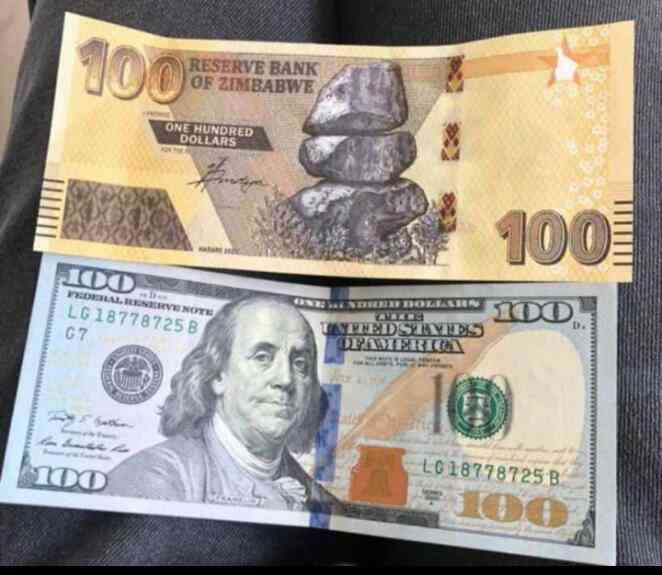
THE Zimbabwe dollar crashed by a whopping 60% against the United States dollar in May alone, underlining a raging economic crisis that has wiped salaries and sent prices soaring.
Zimbabwe's economy is struggling to emerge from decades of decline and bouts of financial chaos that charactersised the latter half of the late former leader, Robert Mugabe’s reign.
His successor, President Emmerson Mnangagwa, has struggled to contain the crisis, and the country is again in the throes of a currency predicament that critics blame on endemic public corruption and economic mismanagement.
In May alone, the Zimdollar crashed from $1,059 to the greenback at the start of the month to $2,557 on the auction market, a drop of 58,6%.
On the black market, it shed 54% of its value, from $1,950 to $4,200 as of Wednesday this week.
It represents a staggering decline of the currency, which traded at 1:1 when it was relaunched in June 2019.
Critics believe the current iteration of the Zimdollar will meet the same ignominious end as its 2008 version, which the government pulled when inflation hit a global record high of 500 billion percent in December of that year, according to the International Monetary Fund.
The May drop was the steepest erosion of the currency this year, according to economists following sharp increases in money supply.
- DPC pays out $139 million
- Zimdollar shortage hits market
- Nedbank Zim profit surges
- Editor's Memo : Clean up procurement corruption
Keep Reading
“Above all the measures, government needs to close the liquidity tap and curtail money supply growth,” Equity Axis, an advisory firm, said in a report.
“The liquidity menacing the market is not only as a result of (foreign currency) auction market funding. RBZ (Reserve Bank of Zimbabwe) has been issuing currency for various ends and this need to stop. This is the government’s achilles heel.
“The Zimbabwe dollar will only survive if discipline in fiscal management is adopted. Every other stabilisation measure only works to some extent, limited by the levels of new money creation. In any case the growth in local liquidity should not outpace that of foreign currency, as a disequilibrium will depreciate the local currency’s value.”
On Monday, Finance minister Mthuli Ncube introduced new measures to stabilise the economy.
Chief among the measures included his decision to take over payment of 25% foreign currency export proceeds, which were being surrendered to the RBZ.
The RBZ would then pay them Zimbabwe dollars at the prevailing official exchange rate.
However, Ncube said the central bank was paying exporters after printing money, thus fuelling money supply.
“Treasury will now fund the Zimbabwe dollar component of the 25% foreign currency surrendered by exporters, in order to eliminate the creation of additional money supply,” Ncube said.
Trends during the first quarter showed a relationship between the increase in money supply and currency depreciation.
During the period, money supply grew nearly 37% to $3,19 trillion from December 2022.
Also, during the same period, the Zimbabwe dollar fell nearly 36% and approximately 45%, against the United States, on the official and parallel forex markets, respectively.
Equity Axis said by handling the 25%, the Ministry of Finance took the role previously done by the RBZ.
“The shift is due to two key developments. First, the near disbandment of the auction market, which reduces the need of the RBZ to control surrender funds and leverage these in successive auction markets,” Equity Axis said.
“With a limited allocation, a significant portion of the surrender funds will now be free for allocation via the decentralised banks controlled interbank market. It is also key to note that Treasury highlights this as a key driver of liquidity creation by the RBZ, in the past. The RBZ was printing money to fund the auction.”
Treasury would now take receipts from taxes paid in Zimbabwe dollars to settle the surrender funds.
However, experts such as Africa Economic Development Strategies executive director Gift Mugano and economic commentator Tinashe Murapata questioned how the government would fund the undertaking.






